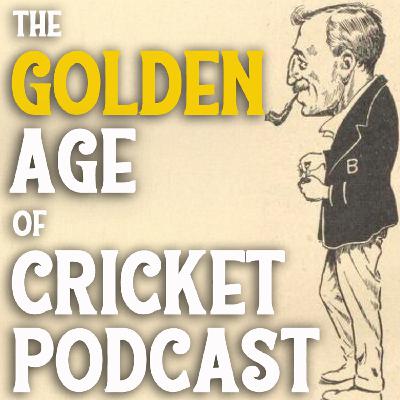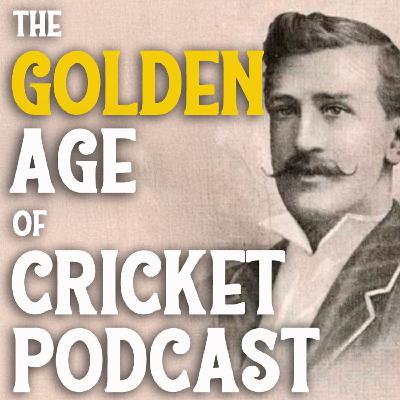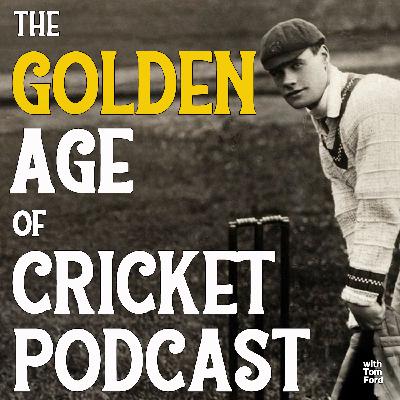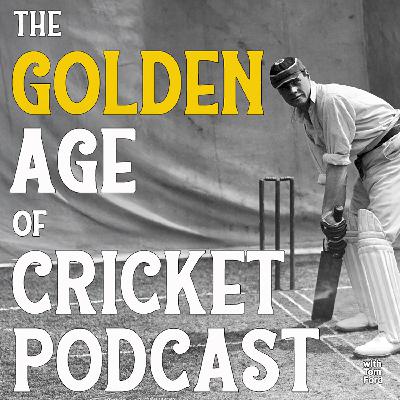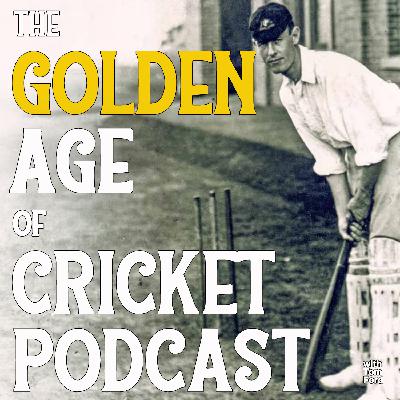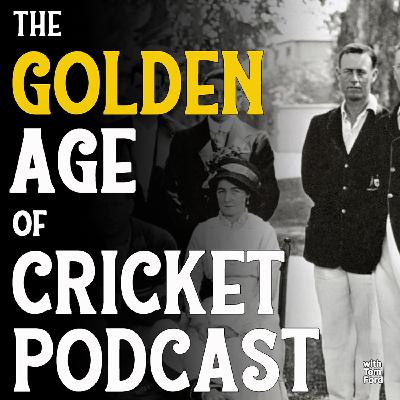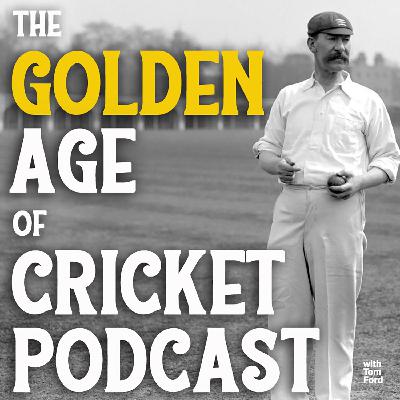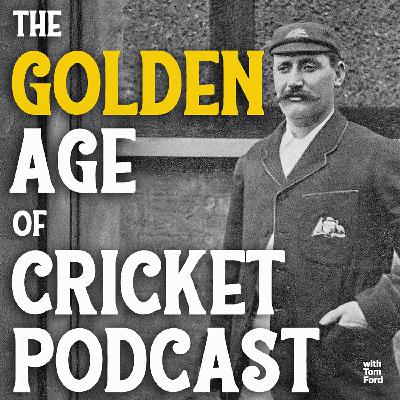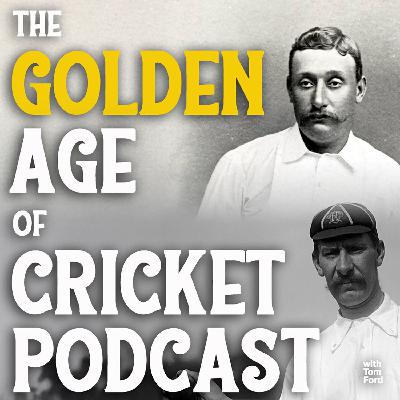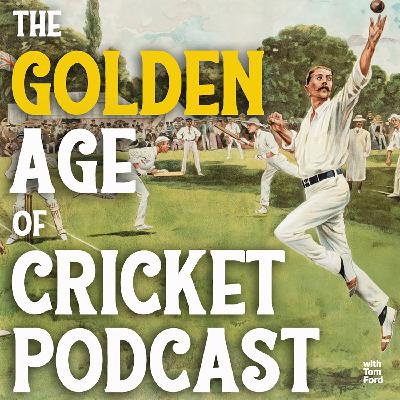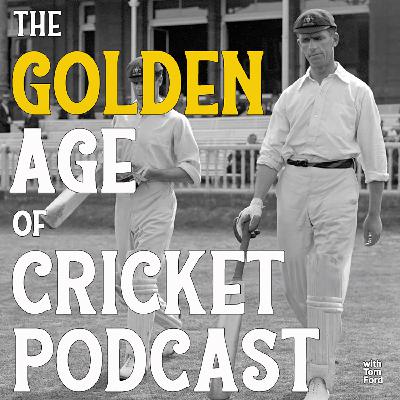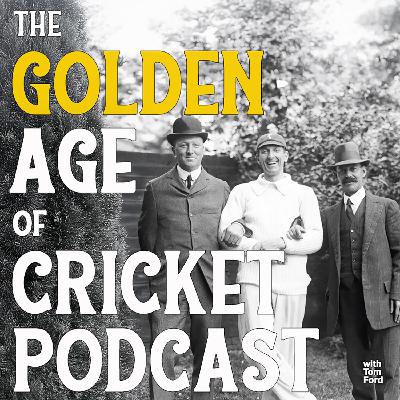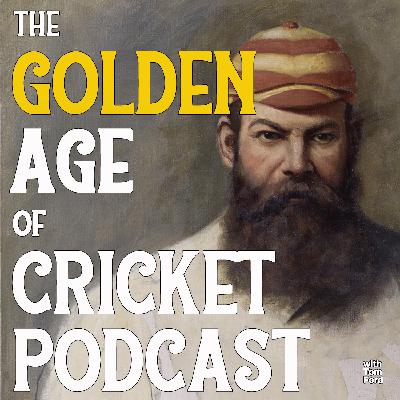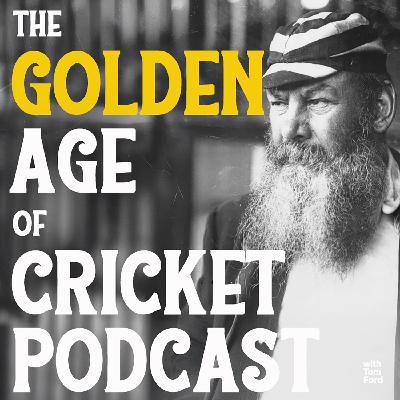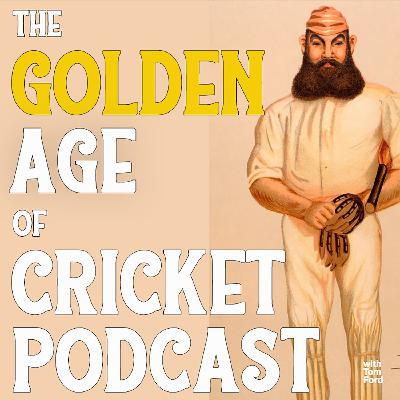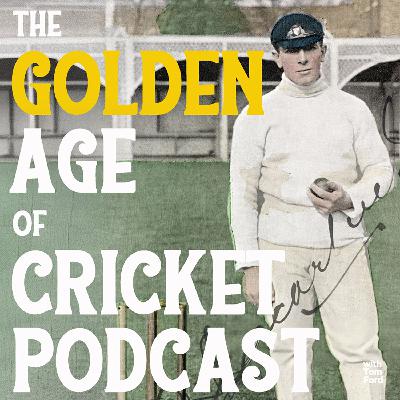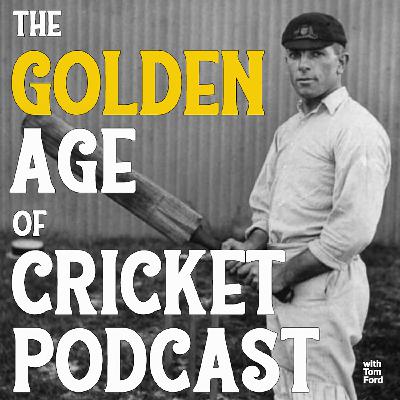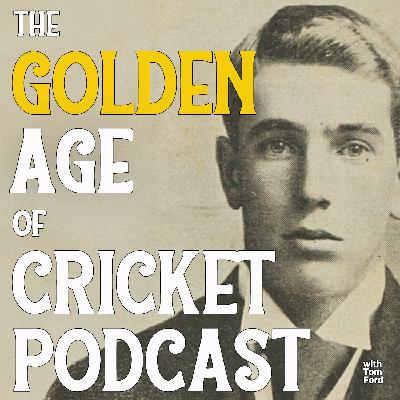There is perhaps no English cricketer who encapsulates the spirit of The Golden Age more than Gilbert Jessop. A wildly talented all-round Amateur from Gloucestershire, whose great, improbable batting at The Oval during the Fifth Test match of the 1902 Ashes not only won the match, but established a mythical-like status for himself and the Age, which has only grown in reputation since. To this day, his match-winning century remains the quickest by an Englishman in Test cricket. In Part 1, writer Simon Wilde joins Tom to discuss Jessop's early life, his famous 'crouching' batting style, his transition from fast bowler to big-hitting batsman, and his form leading into the 1902 Ashes series.
DONATE: You can buy Tom Ford a coffee! Every donation helps with production and inspires Tom to keep the podcast going. You can donate from a little as $5. Visit: buymeacoffee.com/GoldenAgeOfCricket [http://buymeacoffee.com/GoldenAgeOfCricket]
ABOUT SIMON WILDE: Simon has been cricket correspondent of the Sunday Times since 1998. He has written 12 books, three of which were shortlisted for the William Hill Sports Book of the Year. His most recent works have been the acclaimed England: The Biography, a history of the men's national team, and The Tour, which chronicles the England team's travels overseas since 1877, which won the MCC/Cricket Society Book of the Year prize. His new book - Chasing Jessop: The Mystery of England Cricket's Oldest Record [https://www.amazon.co.uk/Chasing-Jessop-Mystery-England-Crickets/dp/1526692538/ref=sr_1_1?crid=2SIKIO065721A&dib=eyJ2IjoiMSJ9.HgZqQ1GqvTmiVLLeLBu0Bw.J78sbzJ3v7RWMixYHdHePQjZ_vh8G8MlMEAedz8tb4U&dib_tag=se&keywords=chasing+jessop&qid=1755391529&sprefix=chasing+jessop%2Caps%2C738&sr=8-1] - has just been published, and chronicles not only Jessop's colorful career, but forensically dissects one of the most famous individual feats in the history of the game.
CREDITS: Presenter & Producer: Tom Ford
All music used in podcast comes from the University of California Santa Barbara's remarkable collection of wax cylinder's from the late nineteenth and early twentieth centuries, which are free to download and use. You can donate to the upkeep of these recordings via their website.



